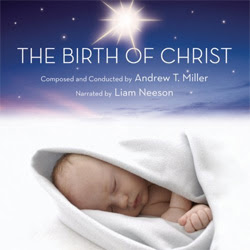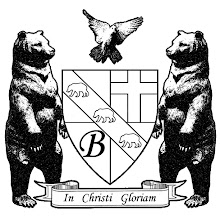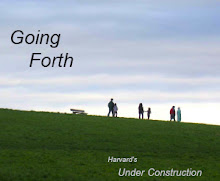 Last night I stumbled across a new piece of music called The Birth of Christ. It's a Christmas cantata by Seattle composer Andrew T. Miller. It was recorded by Anglican and Catholic choirs in Christ Church Cathedral, Dublin, and it's narrated by Liam Neeson. It's being aired around the US during the weeks leading up to Christmas (here's the schedule). You can check out a video preview of the piece here.
Last night I stumbled across a new piece of music called The Birth of Christ. It's a Christmas cantata by Seattle composer Andrew T. Miller. It was recorded by Anglican and Catholic choirs in Christ Church Cathedral, Dublin, and it's narrated by Liam Neeson. It's being aired around the US during the weeks leading up to Christmas (here's the schedule). You can check out a video preview of the piece here.It sounds like an exciting piece, and I'm looking forward to watching it in its entirety. The story of Christmas is just so fascinating -- I know that no matter how long I contemplate it, I'll never do more than scratch the surface of its beauty and mystery. So I take every chance I can get to experience someone else's take on the incredible night that changed the world forever. Here's what the composer has to say about his rationale for writing The Birth of Christ (from his website):
"The biblical chronicle of the Christmas story has always moved me. It is the tale of how God sent His son to us as a child. Most Christians know the rest of the gospels as the foundation of their faith—Christ ultimately grew to adulthood, lived a human life not unlike ours, performed miracles, gathered followers, was the example of how to live, endured many of the trials we do on earth, gave himself freely for our sins in the most selfless way and finally rose from the dead after three days, opening the gates of heaven for all who believe. The story is powerful, and has converted many just in its telling. But it has always been important for me to remember that Christ came to us as a little child, a helpless and defenseless tiny little baby. He was not born to nobility. He did not come to the throng of cheering crowds. He did not come as a conquering hero. He was born to a young and vulnerable woman and a carpenter who both said 'yes' to God’s call. He came in the manner He did, with the aid of the people He called so that all might know, as I’ve written in the conclusion of the cantata, He came for each and every one of us.
"I have likened The Birth of Christ to 'Mr. Andy’s Opus.' It has been many years in the making, but it is a story I’ve always wanted to tell through music. I have examined the scriptures and have juxtaposed them to what I feel must have been the human reaction by these very lowly and humble people to these amazing events. Bottom line, they must have been in awe and probably even a bit terrified: to encounter an angel in a dream, to receive instructions that you would conceive out of wedlock (a stoning offense in that time), seeing not just one angel, but a multitude in your field, or to encounter a few kings led by a star showing up to pay homage to an infant. These unbelievable events unfolded in this incredible tale and occurred to ordinary work-a-day folk who just responded to God’s call and said 'yes' in some way. It has been my desire to express, through the most powerful medium I know, a testament to God’s divine wisdom and power, and to share the reverence I hold for the holy people of this grand story.
"It is my great honor to have our special guest narrator, Liam Neeson, share this powerful scripture, have Catholic and Anglican choirs assembled en masse singing their hearts out, and enjoy six of the most talented soloists I know, sharing this new work with you. May it inspire you and usher in this Christmas season with a renewed sense of awe and wonder."














